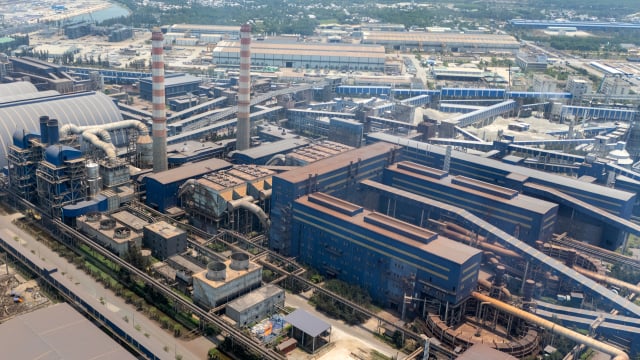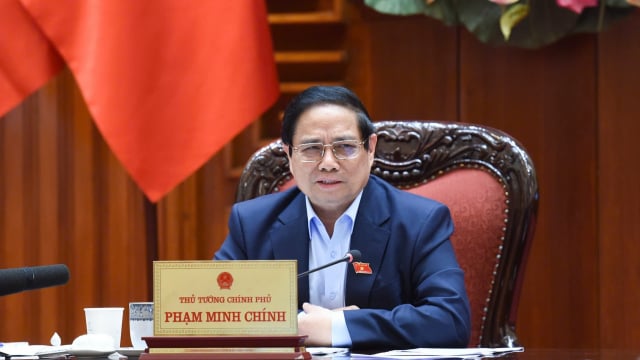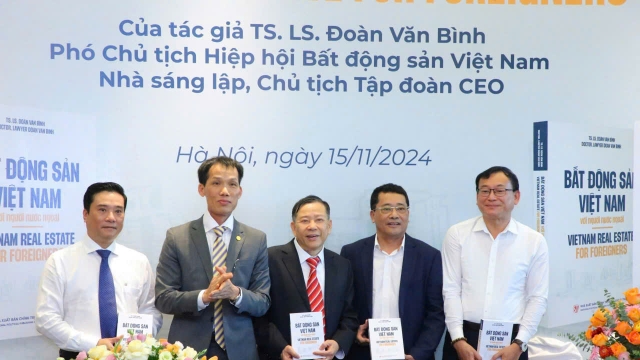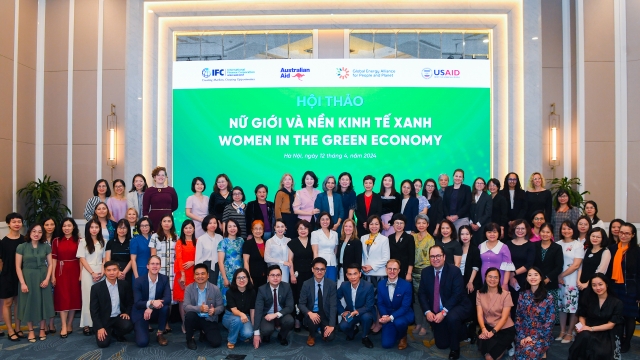National Focus
U.S. commits to linking Vietnamese SMEs to global chain
World class U.S. companies including Microsoft, Cisco, FedEx, Coca-Cola, and Visa are promoting the integration of Vietnam’s leading small and medium sized enterprises into the global supply chain.

At the U.S. - ASEAN Business Council’s (USABC) workshop recently held in Hai Phong city on elevating small and medium businesses into industrial revolution 4.0 and inclusive global value chains, U.S. Ambassador to Vietnam Daniel J. Kritenbrink stated that these companies are leveraging industrial revolution 4.0 technologies to help Vietnamese companies succeed.
One typical example is General Electric’s (GE) “brilliant” factory in Hai Phong, one of GE’s most advanced manufacturing facilities, where GE’s long-term partnerships with local Vietnamese suppliers are strongly developed.
GE supports its Vietnamese partners through sharing how to improve their management capabilities and use advanced technology.
Twenty percent of GE’s manufacturing inputs are sourced from local Vietnamese suppliers. This firm hopes to raise that number even higher.
According to Vice Chairman of Haiphong People’s Committee Le Khac Nam, the fourth industrial revolution is happening stronger than ever before with the breakthrough of technologies. Utilizing these resources could create added value as well as radically transform the economy, especially when Vietnam has integrated deeper into the world with a number of free trade agreements signed with other nations and organizations.
However, Nam said that the challenges are not less because a large number of enterprises in Hai Phong in particular and in the north of Vietnam, in general, have not been familiar with the international trade. They still lack language capability, vision and the ability to assign international labor.
According to Daniel J. Kritenbrink, the U.S. is committed to working with Vietnam to help Vietnamese small and medium enterprises adapt to the modern global economy.
The United States Agency for International Development (USAID) early this October awarded the new five-year $22 million linkages for small and medium enterprises (LinkSME) project to International Executive Service Corps.
LinkSME aims to improve and expand the supplier-buyer relationships between Vietnamese and foreign firms. This project will raise productivity and increase Vietnam’s capacity to supply products to larger companies both inside and outside Vietnam.
Foreign firms will reap efficiency and benefits from increased local outsourcing. LinkSME will facilitate Vietnamese entrepreneurs to integrate into the global value chain, pursue new opportunities and provide new jobs for their communities.
Thailand and Indonesia dominated imported cars last week
Resolution 68: A turning point in Vietnam's private sector policy
As Vietnam sets its sights on becoming a high-income country by 2045, Resolution 68 lays a crucial foundation. But turning vision into reality requires not only good policy - but also unwavering execution, mutual trust and national unity.
Vietnam plans upgrade of Gia Binh airport to dual-use international hub
Vietnam plans to upgrade Gia Binh Airport in Bac Ninh province into a dual-use international airport to support both military and civilian operations, the government said on Friday.
Lives under the scorching sun: Outdoor workers racing against climate change
Under unforgiving conditions, the outdoor workers - the backbone of urban economies - endure the harshest impacts of climate change while remaining overlooked by social safety nets. Their resilience and struggles highlight the urgent need for better protection in the face of rising temperatures and precarious livelihoods.
CEO Group chairman unveils guide to Vietnam real estate for foreigners
Doan Van Binh, Chairman of CEO Group and Vice President of the Vietnam National Real Estate Association, introduced his latest book, “Vietnam Real Estate for Foreigners,” at a launch event in Hanoi on Friday.
Women leading the charge in Vietnam's green transition
Acting for increased women’s participation and leadership in climate action, Vietnam can accelerate a transition that is more inclusive, just, and impactful.
Steam for girls: A journey of passionate and creative girls
The "Steam for girls 2024" competition provides a creative platform for Steam and an opportunity for students to connect with peers from various regions within Vietnam and internationally.









































